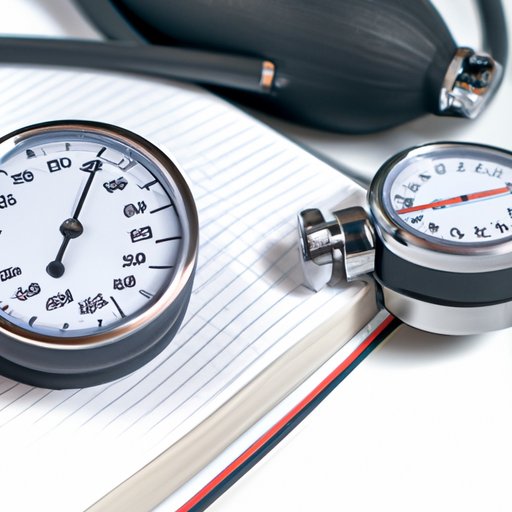How to Bring Blood Pressure Down: Tips and Strategies
High blood pressure, also known as hypertension, affects millions of people worldwide. It can increase the risk of heart disease, stroke, and other severe health problems. Fortunately, there are several things one can do to lower blood pressure naturally. This article provides tips and strategies that can help you bring your blood pressure down.
Diet Tips to Lower Blood Pressure
Diet plays a crucial role in managing blood pressure. A diet high in fruits, vegetables, and whole grains can help lower blood pressure. Here are some essential tips to consider:
Reduce Sodium Intake: Excess sodium can elevate blood pressure levels. Try to limit your daily intake to no more than 2,300 milligrams. Avoid processed foods, and use salt substitutes or herbs to season food instead of salt.
Increase Potassium Intake: Potassium is a mineral that helps to balance out the effects of sodium on blood pressure. Foods that are high in potassium include sweet potatoes, bananas, spinach, avocados, and tomatoes. Try incorporating these into your diet for added health benefits.
Consider a Mediterranean-style diet: A Mediterranean-style diet consists of foods such as fish, nuts, fruits, vegetables, whole grains, and olive oil. This diet has been shown to decrease blood pressure levels in the long run.
Exercise and Physical Activity
Regular physical activity is one of the most effective ways to lower blood pressure. Exercise makes the heart stronger, which helps pump blood through the body with less force. Here are some ways to increase physical activity levels:
Aerobic exercise: Doing aerobic activity, such as brisk walking, running, or cycling for 30 minutes or more on most days of the week, can lower blood pressure.
Strength training: Strength training can help strengthen the heart and reduce blood pressure. Examples include weightlifting and bodyweight exercises like push-ups, planks, and squats.
Stretching: Incorporating stretching into your fitness routine can reduce stress levels and lower blood pressure. Consider taking a yoga or Pilates class for added benefits.
Mind-Body Techniques
Chronic stress is known to increase blood pressure levels. Practicing relaxation techniques can help reduce stress and lower blood pressure. Here are a few suggestions:
Deep breathing: Slow and deep breathing can reduce stress and lower blood pressure. Find a quiet place and take slow, deep breaths for a few minutes every day.
Meditation: Meditation is a state of deep relaxation that can lower blood pressure and reduce anxiety and depression. Try guided meditation or a mindfulness-based stress reduction program.
Supplements
Certain supplements can also help lower blood pressure levels. Here are some natural supplements to consider:
CoQ10: Coenzyme Q10 (CoQ10) is a natural compound that helps improve heart health and reduce blood pressure levels.
Omega-3 fatty acids: Omega-3 supplements can help decrease inflammation and improve heart health. Good sources of omega-3 include fish, chia seeds, and walnuts.
Weight Loss
Obesity is a significant risk factor for high blood pressure. Losing weight through diet and exercise can decrease blood pressure levels. Here are some tips for weight loss:
Follow a healthy diet: A diet low in saturated fat, salt, and processed foods can help you lose weight and lower blood pressure.
Increase physical activity: Exercise can help you lose weight and lower blood pressure. Aim for at least 150 minutes of moderate-intensity exercise per week.
Limit Alcohol and Tobacco
Both alcohol and tobacco use contribute to high blood pressure. Quitting or reducing consumption can lead to lower blood pressure levels.
Alcohol: Limit alcohol intake to no more than one drink per day for women and two drinks per day for men.
Tobacco: Quitting smoking can quickly lower blood pressure levels. Seek professional help to quit smoking if needed.
Medical Treatment
Medication may be necessary for those with persistent high blood pressure levels. Consult with a physician about the best treatment options available for you. Collaborate with a healthcare provider to find the right medication and manage blood pressure levels.
Conclusion
Lowering blood pressure levels is essential in maintaining good health. Lifestyle changes can help decrease blood pressure and prevent severe health problems. Incorporate these tips and strategies into your daily routine to bring your blood pressure down.
